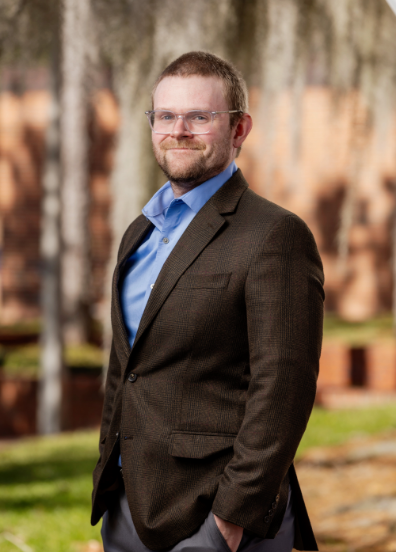
Clay Greene’s scholarly interests lie in the literary and intellectual culture of early modern England, especially from the 1650s through the 1750s. Within that broad framework, he studies the intersections of philosophy, theology, and poetry, with a focus on the poetic work of John Milton. His dissertation project covered the revival of the Platonic doctrine of the pre-existence of the soul among English poets and philosophers, arguing that this revival constituted a genuine religious movement of significance. He is fascinated by the ways that individual moral and spiritual considerations always take place against a complete background of metaphysical assumptions about the nature and significance of reality. No era better exemplifies this fact than the late seventeenth century, a time when the “world pictures” of entire societies were in radical flux. Recently, his interests have shifted from the metaphysical to the physical, with a special focus on the imagination of warfare in early modernity, but even here, the focus remains on how beliefs about war crucially depend upon general beliefs about man’s role in the cosmic drama of creation.
Dr. Greene’s current project is a study of the relationship of epic poetry and warfare through a focus on the sublime poetics of physical size and power. Paradise Lost is at the center of that study, which also includes William Davenant’s Gondibert, John Dryden’s Annus Mirabilis, as well as short works by Joseph Addison and Aphra Behn. While the late seventeenth century is often seen as the era of the demise of heroic poetry, that demise has very little to do with a shift from militaristic to domestic values. Rather, Milton’s Paradise Lost contributed to the revival of Homeric depictions of combat over and against the chivalric romance scenes of the earlier half century. English poets turned to Homer because the Homeric depiction of power, as opposed to the chivalric emphasis on ceremony, skill, and virtue, helped them reckon with the changing face of warfare and the growing scope of English imperial ambition.
“‘Had She Bin Contented with Ideas’: Thomas Vaughan’s Doctrine of Preexistence,”
Scintilla 2023
“Giving Laws to Milton’s God: Præexistence (1714) as Revision of Paradise Lost,” in Locating
Milton: Places and Contexts, November 2021
“Our Souls and Fleshy Hearts: The Body, Sacraments, and Grace in Herbert’s ‘The H.
Communion,’” Cithara, May 2018
“Common Efforts, A Review of Judith H. Anderson’s Light and Death: Figuration in
Spenser, Kepler, Donne, Milton,” Marginalia, 2017
University of Florida
Gainesville, FL 32611
UF Operator: (352) 392-3261
